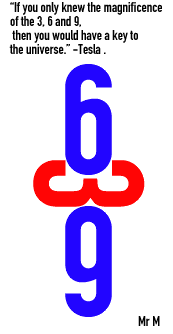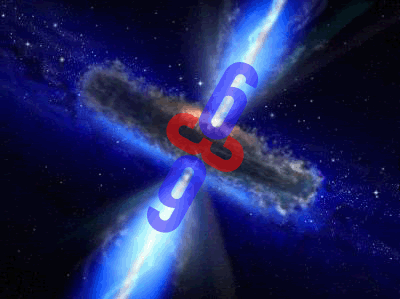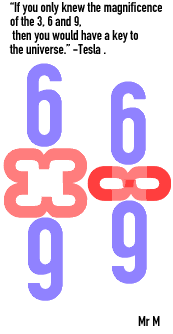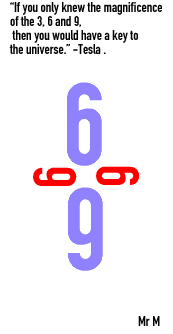from:The Legacy of Marcel Vogel
Perhaps it may be useful to expand on a "relationship" with any science, object, or person. My lady sleeps soundly in bed, and I, awake for this night.  I am reflecting on the meaning of "relationship" -- not the dictionary definition -- its meaning to me. (This definition/example is simply "true" to me)
I am reflecting on the meaning of "relationship" -- not the dictionary definition -- its meaning to me. (This definition/example is simply "true" to me)
We have more complex relationships as time goes on -- and we make decisions relating to that object, science, or person.
If we have negative relationships -- the other person, or we -- tend to impact the other in such a way that we take things too personally, and generally mis-interpert the intent of what was being conveyed. If we hold on to that misinterpertation -- we record a "bad" memory.
The inverse is also true -- if something effects us in a way which makes us more positive, or happy -- we remember "good" memories.
We seem to learn things based on our previous thoughts -- I imagine that our brain is using the same neurons of our previous experience, to interpert the present input.
I don't know if I can explain this without personalizing it -- so I'd like to share an example of calculus class in high school. The teacher always made me laugh -- but I always found homework a drag, and could never get it done if I was discontent. My "experiment" with myself, was to smile and laugh at the calculus book before I ever opened it until I felt like it was a very good friend of mine -- then tried to read its pages.
I learned a lot faster when I thought the book was helping me -- not forcing me to do homework. In light of the feelings I possessed, I was able to help or hinder the pleasantness which I experienced going through the class. Many students made it unpleasant for themselves and complained a lot, instead of provoking the learning for themselves.
I would like to call attention to the bolded words above -- "In light".
(I could not find the exact quote from MM, I apologize)
If our brains record memories into the liquid crystal, water -- we are forming records of our thoughts. Our previous thoughts seem to function a bit like filters. The filters intercept the carrier waves, and the next thought (where your neurons spark to another neuron, to "fry" a connection into place), would seem to receive the frequency embedded in the carrier signal.
The relationship -- or "track record" which you have localized in your body influences your perception about any given topic. I did not mean to write so much simply to bring about such an obvious conclusion -- so I would like to expand a bit more in a different direction.
Do you think that each person uses the same nervous impulse to motivate their limbs? We might see a similar waveform if we were to attach some sort of sensor to their nervous system -- but I would think that in the range of "psychokinesis" -- that would require a slightly different nervous impulse than simply motivating their individual arm.
In our nervous impulse, we are giving rise to the contraction of our muscle tissue through the water, are we not?. If we did not have a sufficient electrical charge in that impulse, we could not motivate that muscle to the degree in which we intended. The difference in intensity I sense here, is the notion that I "should" do something, versus the act of actually doing it.
At this point in my life, I think -- psychokinesis would begin as a learned talent by learning how your consciousness can impart a charge to the water in your body. Then, learning how you can impart a charge on things outside your body. Learning to increase the intensity, or rate of change of that charge should eventually result in some movement -- but that conclusion is the "fruit" made available by the primary impulse, largely by leaving an "available space" -- sort of like room to breathe. No space/no room to breathe, you don't get that end goal.
I remember reading somewhere (dont remember where, sorry), a story that some initiates in a monastery would have to practice the form of punching, from several meters away from a bucket -- until the water "jumped" out of the bucket. Some could never do it -- some, it took a long time to learn.
Here lies the key difference as to why the track record of thinking "constructively", versus "skeptically" -- a skeptic secretly means they have a previously recorded thought which does not leave "room to breathe" for an outcome. The notion or predisposition of being a skeptic, indicates to me, that their track record says "I don't think this could work" -- hence why they are "unsure" whether something could/would work.
Whereas thinking in a generative or creative manner, will try to exhaust all the possibilities to see how it might work -- offering the entirety of their experience to try to move towards the goal (endpoint) of the desired thought -- whomever the desire came from.
In the worst case, a generative thinker can "see for themselves" -- never allowing someone else's criticism, or limiting thoughts sway them past a point of "interested neutrality".
The relationship to any research, science, or idea, is therefore highly important -- for those who are not at least "neutral" will never "see" what you may be trying to say, what you observe, or even what you might be looking for -- until you extend your record of your thinking, to show them "how you think of it", until that thinking is their own. By extending your thinking to them -- you give them a part of yourself -- as they then also have a that same record of potential in them.
Your thinking can heal, or rectify past experiences of other people by sharing with them your understanding -- so that they better understand it themselves.
Could someone choose to change how they feel about something? Could you change, through explaining or sharing something -- how someone else perceives that thing, or past experience?
Perhaps their past experience is something akin to a recorded "signal" (basic "crystal") -- by explaining it through your "new understanding" -- you are frying different neurons (Read: making different crystals in their brain) so that they can run that primary signal through different potentials (crystals), to attain a different apparent result of the same experience?
Choice/Intent, and understanding, may be a key to mastery of mental transmutation.
When we transmute any element into any other element, are we not simply putting that apparent state of matter (apparent effected form of the one substance -- Read: "Base signal") -- through different potentials, to achieve a different apparent result. (I.E transmuting copper into gold)
This might be a little dense, but I appreciate it if you made it this far reading.
Thank you for sharing your truths, MM. Please let me know if anything I am saying is "too far off" from what you are saying. I hope that by sharing my different "signal" or "waveform" of thoughts, that others may view your posts in a different light.
I would hope that what I am thinking is helping to inter-relate our own internal processes, to the processes that also occur outside of ourselves.
==Romo
This is one reason why certain scientific investigations in the area of subtle energies cannot be readily replicated. It is not always a matter of scientific protocol, but a matter of relationship. Unfortunately many scientists would consider this to be some kind of inessential and perhaps bothersome epiphenomena. Although such individuals are scientists, to Marcel, they were technicians attempting to prove what they already thought was true. The true scientist is one who attempts to discover with childlike curiosity. Too often we, all of us, only want to confirm what we already believe.
also water is influenced by your presence....water has memory
 I am reflecting on the meaning of "relationship" -- not the dictionary definition -- its meaning to me. (This definition/example is simply "true" to me)
I am reflecting on the meaning of "relationship" -- not the dictionary definition -- its meaning to me. (This definition/example is simply "true" to me) We have more complex relationships as time goes on -- and we make decisions relating to that object, science, or person.
If we have negative relationships -- the other person, or we -- tend to impact the other in such a way that we take things too personally, and generally mis-interpert the intent of what was being conveyed. If we hold on to that misinterpertation -- we record a "bad" memory.
The inverse is also true -- if something effects us in a way which makes us more positive, or happy -- we remember "good" memories.
We seem to learn things based on our previous thoughts -- I imagine that our brain is using the same neurons of our previous experience, to interpert the present input.
I don't know if I can explain this without personalizing it -- so I'd like to share an example of calculus class in high school. The teacher always made me laugh -- but I always found homework a drag, and could never get it done if I was discontent. My "experiment" with myself, was to smile and laugh at the calculus book before I ever opened it until I felt like it was a very good friend of mine -- then tried to read its pages.
I learned a lot faster when I thought the book was helping me -- not forcing me to do homework. In light of the feelings I possessed, I was able to help or hinder the pleasantness which I experienced going through the class. Many students made it unpleasant for themselves and complained a lot, instead of provoking the learning for themselves.
I would like to call attention to the bolded words above -- "In light".
(I could not find the exact quote from MM, I apologize)
"Crystal = frozen light (greek)"
"Crystals are the record in form, of the potential which produced them" -- Russell
"Crystals are the record in form, of the potential which produced them" -- Russell
The relationship -- or "track record" which you have localized in your body influences your perception about any given topic. I did not mean to write so much simply to bring about such an obvious conclusion -- so I would like to expand a bit more in a different direction.
Do you think that each person uses the same nervous impulse to motivate their limbs? We might see a similar waveform if we were to attach some sort of sensor to their nervous system -- but I would think that in the range of "psychokinesis" -- that would require a slightly different nervous impulse than simply motivating their individual arm.
In our nervous impulse, we are giving rise to the contraction of our muscle tissue through the water, are we not?. If we did not have a sufficient electrical charge in that impulse, we could not motivate that muscle to the degree in which we intended. The difference in intensity I sense here, is the notion that I "should" do something, versus the act of actually doing it.
At this point in my life, I think -- psychokinesis would begin as a learned talent by learning how your consciousness can impart a charge to the water in your body. Then, learning how you can impart a charge on things outside your body. Learning to increase the intensity, or rate of change of that charge should eventually result in some movement -- but that conclusion is the "fruit" made available by the primary impulse, largely by leaving an "available space" -- sort of like room to breathe. No space/no room to breathe, you don't get that end goal.
I remember reading somewhere (dont remember where, sorry), a story that some initiates in a monastery would have to practice the form of punching, from several meters away from a bucket -- until the water "jumped" out of the bucket. Some could never do it -- some, it took a long time to learn.
Here lies the key difference as to why the track record of thinking "constructively", versus "skeptically" -- a skeptic secretly means they have a previously recorded thought which does not leave "room to breathe" for an outcome. The notion or predisposition of being a skeptic, indicates to me, that their track record says "I don't think this could work" -- hence why they are "unsure" whether something could/would work.
Whereas thinking in a generative or creative manner, will try to exhaust all the possibilities to see how it might work -- offering the entirety of their experience to try to move towards the goal (endpoint) of the desired thought -- whomever the desire came from.
In the worst case, a generative thinker can "see for themselves" -- never allowing someone else's criticism, or limiting thoughts sway them past a point of "interested neutrality".
The relationship to any research, science, or idea, is therefore highly important -- for those who are not at least "neutral" will never "see" what you may be trying to say, what you observe, or even what you might be looking for -- until you extend your record of your thinking, to show them "how you think of it", until that thinking is their own. By extending your thinking to them -- you give them a part of yourself -- as they then also have a that same record of potential in them.
Your thinking can heal, or rectify past experiences of other people by sharing with them your understanding -- so that they better understand it themselves.
Could someone choose to change how they feel about something? Could you change, through explaining or sharing something -- how someone else perceives that thing, or past experience?
Perhaps their past experience is something akin to a recorded "signal" (basic "crystal") -- by explaining it through your "new understanding" -- you are frying different neurons (Read: making different crystals in their brain) so that they can run that primary signal through different potentials (crystals), to attain a different apparent result of the same experience?
Choice/Intent, and understanding, may be a key to mastery of mental transmutation.
"All matter is crystalic in nature" -- Walter Russell
This might be a little dense, but I appreciate it if you made it this far reading.
Thank you for sharing your truths, MM. Please let me know if anything I am saying is "too far off" from what you are saying. I hope that by sharing my different "signal" or "waveform" of thoughts, that others may view your posts in a different light.
I would hope that what I am thinking is helping to inter-relate our own internal processes, to the processes that also occur outside of ourselves.
==Romo





 , and trust me i would not have been able to express myself as well as you have done in this post....
, and trust me i would not have been able to express myself as well as you have done in this post....















Comment